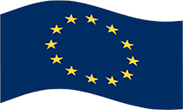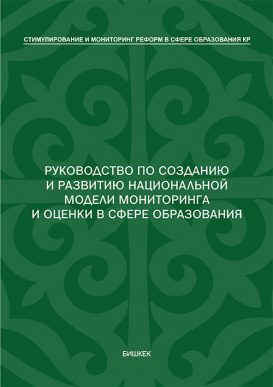Focus of attention of the entire society is currently drawn to the education quality issues. Therefore, one of the main tasks of reforms in the field of education is to develop a single concept of “education quality” for all educational process subjects and implement measures to achieve it.
These issues were the focus of discussion of the round table “Enhancing the role of public organizations in the development of the education policy quality”, which was held on November 16, 2015 as a part of the Joint Project of the K. Adenauer Foundation and “BIOM” EM to the subject of “Promotion and monitoring of reforms in the field of education development in the Kyrgyz Republic” to be implemented under the auspices of the European Union.
Discussion was attended by representatives of the Ministry of Education and Science, teachers of schools and universities, members of the Public Expert Council on Education under the President of the Kyrgyz Republic, the Public Council of the Ministry of Education and Science, an expert on the development of education of the Russian Federation. The round table was attended by about 40 people in total.
Speeches at round table were delivered by: Doctor of Economics Andrei Zybkin, project expert from Moscow, who read a report on “The Experience of the Russian Federation in creation of education quality assessment mechanisms and participation of civil society experts”; Svetlana Sirmbard, Rector of the BFEA, a national expert on reforming of Higher Education in the Kyrgyz Republic, made a presentation on “Assessment and improving the quality of education: challenges and long-term strategies”. The third report read by Larisa Marchenko, Head of the Department of Monitoring and Strategic Planning of the KR MES, was devoted to the subject of “Formation of mechanisms for consideration of public needs on results of quality education”.
During the general discussion participants of the round table noted that the subject was urgent and timely. Though there is no definition of “education quality” concept in regulatory documents of the Kyrgyz Republic yet, it is widely used. Much attention is paid to this issue in the National Sustainable Development Strategy of the Kyrgyz Republic and in the new program of the Government of the Kyrgyz Republic “Stability, trust and new opportunities”, where formation of “human capital quality” as a major factor in the country success is one of the key concepts in the section (2.9) “Human development as a basis of future”. In this connection “emphasis should be made on the quality of rendered services in the field of education”.
Experts pointed out that the unified country quality assessment system has not been formed yet under a number of tools to measure quality at different levels (from the National assessment of students’ educational achievements (NOODU) to assessment at form’s level and of individual student). During discussion they raised issues such as the role of accreditation in ensuring the quality of higher education, the need to build new approaches in the school education assessment system and education sector assessment as important prospect.
According to participants of the round table, results received due to such monitoring studies and assessment of education quality should be a source of information to make well-founded decisions on reforming the education.
In world practice, the education quality is often determined by assessment of how much education system consumers (society, parents and students) are satisfied with services provided in the system. Content of education, which is implemented through standards and curricula and textbooks related thereto, is the core in such understanding of quality. From this point of view, as shown by studies carried out in Kyrgyzstan, the quality of education is not high.
Therefore, transformation of the Kyrgyzstan’s education system to new teaching principles, which are competence-based, fixed in the standards of the new generation at all levels of education is in the centre of the reform, which has been carried out over the past few years. In this regard, the round table participants discussed the issues of improving the standards preparation and teaching materials quality, particularly through creation of such mechanism of coordination of needs of the education system itself and society as a public Coordinating Council on standards and education quality, and its potential to cooperate with the Public Council of the Ministry and other organizations and expert community. Establishment of Councils of such type is a worldwide practice aimed at overcoming the monopoly on development of standards, programs and publication of teaching materials (teaching materials), attracting of a wide range of public (representatives of business, civil society, parents) and experts to assure quality of regulatory documents and teaching materials in the education system.
Participants of the round table believe that establishment of the Coordinating Council on standards and education quality, more active participation of the Public Council of the Ministry of Education and other expert organizations in the education quality monitoring and assessment process will create dialogue platforms to pay attention to this issue all the time and to develop specific measures to achieve education quality at all levels.












